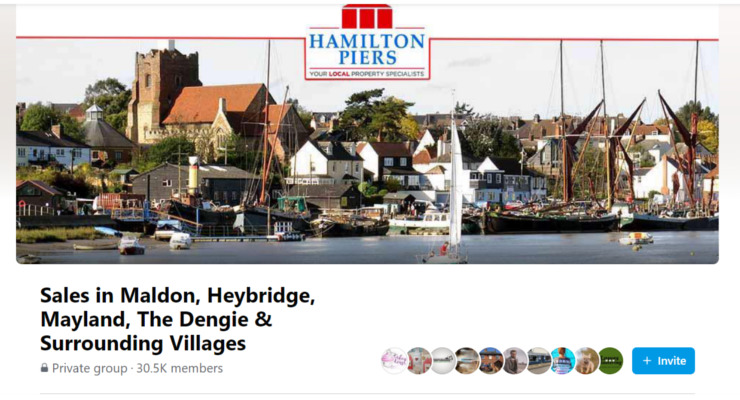How to use Facebook Groups in Estate Agency
Despite what your feelings are towards social media, here we focus on Facebook, be it you use such platforms yourself or not, we surely must all agree that they are having an increasingly important place within marketing that includes getting the message out for estate agents.
For over ten years now I have been involved in social media, focusing mostly on building target audiences and communities with the likes of Facebook, Twitter, LinkedIn and more. During those years I have built and sold businesses / concepts on the back of them and also sold groups and specific URL’s that are keyword rich.
Back in the day, when I first started, I remember very well that social media met with much objection when I tried to push it’s importance, such replies as ‘Facebook is only for telling your friends where you had coffee this morning‘ or that ‘social media is only for kids‘.
I am pleased that today we see nearly all estate agents engaging with social media in one way or another. You will find most having accounts and relatively active with at the very least an update now and then of a latest listing. Social media has grown it’s presence organically within the world of estate agency.
The power of Facebook Groups for Estate Agents
One very useful part of Facebook is ‘groups’. This quite simply is a dedicated page on Facebook with a unique URL address that has a theme / topic which those interested can request to join. These are wide and varied in their subjects from the Bitcoin investors to fans of Italian cooking. Ultimately, and here is the important part, it is highly likely that the people that engage with these groups, the members, are very interested in the said topic / theme of the group.
“Groups are a place to communicate about shared interests with certain people. You can create a group for anything — your family reunion, your after-work sports team or your book club.” source Facebook
Not only can groups help us identify members by their preferences, we can also see groups dedicated to areas which give us a likely demographic to these members.
These groups that are likely to have a country / region / town and similar in their title will usually mean that membership is heavily populated by those local to the title area or at least include those who have or likely to be living there. Group titles, as an example using ‘Colchester’ could include:
- Colchester Amateur Astronomy
- Colchester Buy / Sell / Swap
- Colchester Rambling Club
- Colchester neighbourhood watch
- Colchester single mums
This list can go on and on and certainly does. Groups will vary in sizes depending on subject and popularity – From a handful of members to those with several million, today it is said that there are over 10 million groups on Facebook.
Local Facebook groups offer a wonderful opportunity for estate agents to target local members:
- Join and become a member so your estate agency profile is seen.
- Join debates and discussion so that your profile is seen and members can engage directly with you.
- Create a local group and build your own membership – this should ideally be themed on a topic outside of just ‘your estate agency name’. This should be on the lines of ‘Colchester green spaces‘ or ‘pre-1900 architecture in Colchester‘.
- Sponsor a Facebook group and engage regularly with the membership.
I would like to take a look at the sponsoring idea here as for the most part an estate agent will not own a local group and it will be a great task and cost to build one organically (quick fix schemes promising 1,000’s of quick members usually end up being ‘too good to be true‘).

Example of an estate agency sponsoring a local themed Facebook group
The perfect solution for an estate agency to build their brand awareness within their local community is to reach out to relevant larger (and ideally active) groups on Facebook. Many will be open to working with you and accepting monies for sponsorship of their group. This gives your estate agency a presence on an active Facebook group, your brand will be seen and potentially warm leads generated – Rather similar to that when choosing to advertise in the local newspaper (you are simply looking to reach the eyes of a local audience). An example here is a local Facebook group for Maldon which has 30,000 members and sponsored by the local estate agency with key branding placement.
Some of the local Facebook groups are very active seeing posts / comments added every hour with most of the membership being active at least once a month or more. They are usually naturally grown and you can rely on a high percentage, depending on title of group, of membership being local.
Not only sponsorship of groups you can aim for, you have options such as live broadcasting on these groups via video or simply requesting to place updates / posts that offers the community something to react to from promotions you have to questions you might wish to ask. How clever you are with your marketing will ultimately decide the response you will receive.
Have you joined the Facebook Estate Agency Group? Here you can discuss all such topics and ideas – Have your say by joining today here: https://www.facebook.com/groups/EstateAgency









